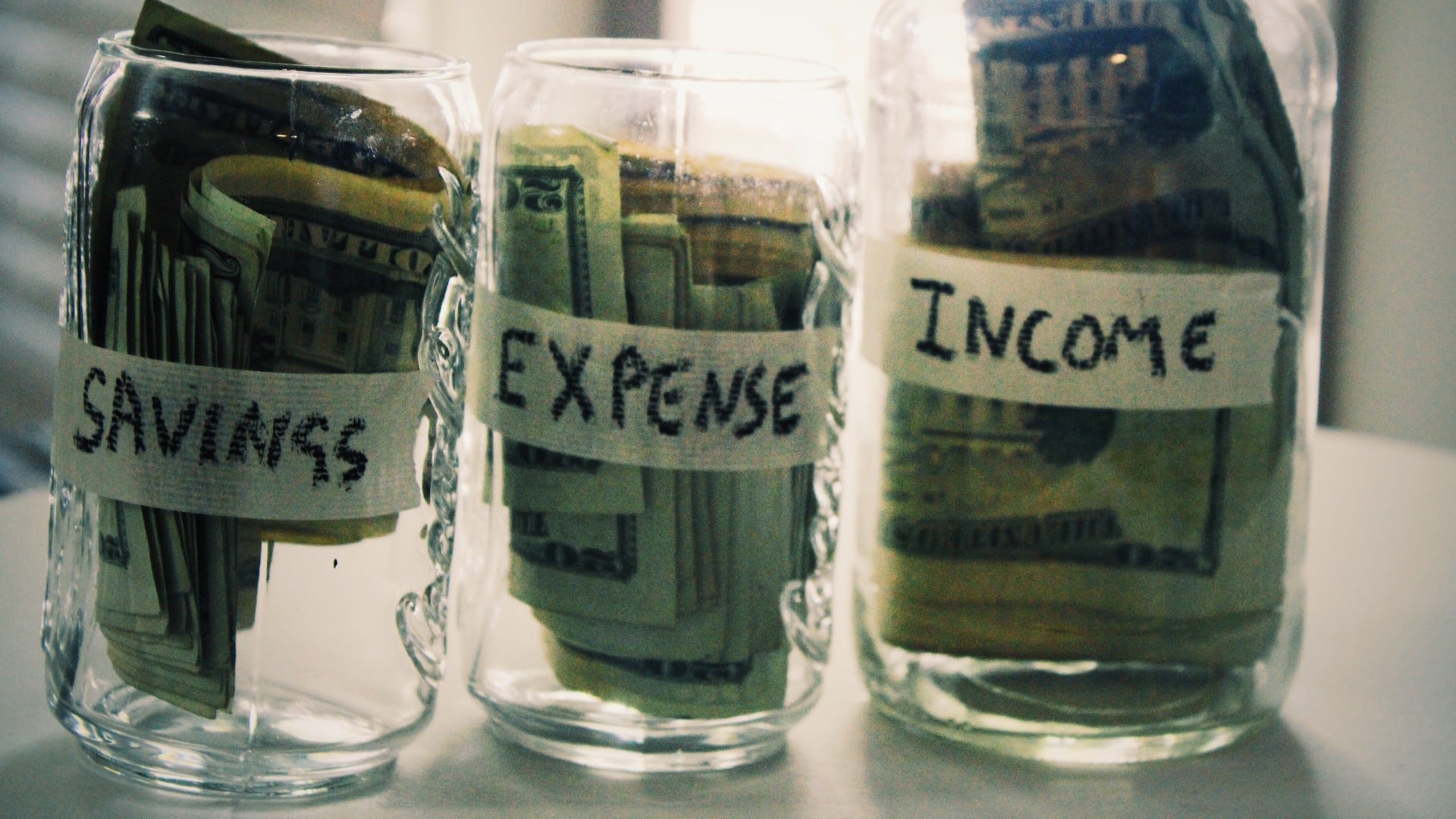Today I’m talking about taxes and retirement, specifically taxation in retirement.
Not a huge, obvious topic for most folks, which is why it gets quite a big shock effect when I give presentations and include the topic in the presentation.
I’m going to give you some bullet points here. And the reason for this is, is if you are saving a lot of money in say 401ks, IRAs, this topic is for you.
403Bs, TSPs, when they did away with pensions, what’s called a defined benefit plan. Those are the benefits defined. You get a pension, you know how much you’re going to get every single month, and it comes in like clockwork until you pass away and sometimes your spouse would receive a portion of that pension until your spouse pass away.
So those were very, very difficult to manage and they got into a lot of trouble. And so they did away with those and now we have defined contribution plans. Defined contribution basically means that the contribution is defined. So you know that you’re going to put a percentage of your paycheck, a set amount. You put something away every single month into whatever contributory plan you’re putting it into. So the most common is a 401k, IRA, 403B, 457, deferred comp, TSP. All these are what we call defined contribution plans.
You are basically in the driver’s seat when it comes to how much you want to put in, but you’re also having to basically manage the types of investments that you pick and choose. And then you also have to manage how you spend that money when it comes to living on it in retirement.
Again, going to give you some bullet points here on the pitfalls that people run into and the list is long, but I’ll give you the big ones.
Most people have been told for decades now that you’re going to be in a lower tax bracket in retirement and that it’s good to let your money grow tax-deferred because you have more money going to work for you. If you don’t have to pay taxes on it, then you have more money growing for you.
What you don’t realize is that by doing that, you’re in a partnership with the IRS.
And I’ve heard a lot of different ways on how people like to relate and explain this, but one of my favorites is it’s like getting taxed on the seed of a harvest.
So a guy goes into a store, a farmer goes into the store and says, “I want to buy two pounds of seeds.”
And the guy says, “Hey, look, I got a great deal for you. You can buy the two pounds of seeds, but I’m not going to charge you tax on these seeds. Why don’t you go ahead and go home and plant these seeds and after your harvest is done, I’ll just tell you what percentage that I want to keep in exchange for those taxes.”
And most people are like, “Well, you got to be nuts. That’s a terrible idea. Oh, and aside from that, you have to do all the work.
You got to do all the planting.
You got to deal with all the storms and all the bugs and all the challenges that comes with raising a crop.
And you also have to deal with selling the crop, but I want a piece at the end.
How does that sound?” The farmer’s like, ‘You’re nuts. I’m going to pay you the tax now and keep all my harvest.”
Well, that’s an easy explanation of what a Roth IRA is, or Roth 401k compared to a standard or traditional Roth IRA or 401k. One of them you have to pay taxes on the harvest and the other one, you pay taxes upfront and you keep the harvest. So all things being equal when you go to take the money out, if you’re in a lower tax bracket or if you’re in the lowest tax bracket as compared to when you’re working, it probably would make more sense to pay the taxes later on, but let’s talk about your tax bracket when you’re in retirement.
Most people would prefer, at least from our experience with our clients, that they stay at least the same quality of life that they’ve become used to at least during your working years.
And you want to at least perpetuate that. Sure, your mortgage is paid off. So you might want to re divert that money that you would pay for your mortgage into, I don’t know, a vacation once a year or a vacation home or something else.
Maybe your kids are grown up and gone so you don’t have to spend that money, but you’re probably going to spend it on something else.
Well, those two items right there, the mortgage and the kids, are also the two largest tax deductions that you get during your working years while you still have those things.
Hopefully, your kids are moved out of your house. In Hawaii, they tend to stick around. Lived there for about 15 years so I know that territory.
Mortgage is at least, hopefully, almost paid off when you get towards retirement. If it isn’t almost paid off, you’re probably paying off mostly principle at this stage.
All the interest is on the front end of the mortgage. So you’ll notice as you move through the years that your interest deduction for the mortgage gets less and less and less.
So the kids, the mortgage, what other tax deductions do you have in retirement?
Well, what about the contributions into those 401ks IRAs? Those are tax deductible and charitable.
And we find that most of the time if people are charitable during their working years, you’re still going to be charitable when you retire. But instead of giving money, you probably give time. And what do we know that the IRS thinks of your time? They don’t really value your time. It’s all about accounting.
So the four biggest deductions that you have during your working years are likely gone or hopefully gone.
And even if your kids are living in your house when you’re at retirement, you can’t write them off, so the four big deductions are gone.
If you at least need the same amount of money to perpetuate your lifestyle in retirement, we know that you at least need close to the same amount of income for at least the majority of your years in retirement.
When you get into your late eighties to early nineties or up to life expectancy, you tend to spend less. But regardless of that, you’re going to need roughly the same amount of money during retirement. So with that being said, you’re not likely, first of all, to be in a significantly lower tax bracket. You might be in a slightly lower tax bracket. And this is not assuming that taxes don’t increase in the future, which from all the experts we partner with and work through, there’s no real way around taxes increasing in the future.
That’s on another blog vlog. In any case, we’re talking about if they remain the same there’s another problem.
When you start taking money out of your 401ks, IRAs, and so forth, that is taxed as ordinary income. So it’s not taxes capital gains, taxes ordinary income because you deferred your income by putting it in there so they’re going to make you pay income taxes when you take it out. Well, when you do that, when you have money coming out of 401ks, IRAs, that’s also considered what they call provisional income.
And there’s a calculation that your accountant, CPA, whoever has to do when you’re taking provisional income and it relates to your Social Security payments. Depending on, and there are actual tables for this, depending on how much you’re taking out of your provisional income, they run a calculation and they tell you if you’re taking over a certain amount, they’ll tax up to 50%, 75%, and sometimes up to 85% of your Social Security ends up in your taxable bracket.
When you look at your tax return, you’ll notice there’s one box that says Social Security distributions, and then over in your taxable income section, it says taxable Social Security.
Most people don’t realize this, and they just kind of let it happen without realizing what it’s actually doing. What it does is it adds.
So if you’ve actually gone through and done the math on how long you expect your 401k and IRA and so forth to last you and don’t realize that there is also an extra taxation on your Social Security, you’re going to have what’s called a premature spend down of your assets to cover that extra cost.
And in most cases, what we see when we do the math, and again, it’s all about math. When we run comparisons, we see that it will shave about five to seven years off of your income lifetime.
So basically you experience a risk of outliving your money because you’re prematurely spending down your assets. And what that really does is you have to cut back on your living expenses during retirement to avoid this.
So how do we get out of this?
Luckily, there’s a light at the end of the tunnel. There’s a way out of it. It does take a lot of planning. It does take paying some taxes prematurely to start converting a lot of those accounts over to what we call Roth. It’s called Roth conversion.
But the other piece of this I want to share is the tax torpedo. What I just described, it has been coined as the tax torpedo. You can Google it. It’s all over the place.
When you pull money out of your IRAs, 401ks to live on, and it creates taxation, and that taxation also creates the need for the Social Security to be taxed, you now have to pull out additional money to pay the tax that you weren’t expecting on your Social Security.
By doing that, you add an additional tax because you pull more money out of that 401k or IRA in order to pay the tax, the extra tax on your Social Security.
So this is kind of like around and around we go. Well, it adds a whole lot of depletion to your tax-deferred accounts. And again, it’s called the tax torpedo. It creates premature spend downs. It is something that absolutely should be looked at and avoided at all costs. It is necessary to do the planning.
You got to go work with a planner, someone like us, or if you don’t work with us, you got to find someone that understands how to mitigate tax rate risk, especially when it comes to retirement.
And that’s completely separate of tax increases. So there’s tax rate increase risk. It should be part of the conversation, another topic, another time.
But I want to keep this short and sweet. The bottom line here is if you’ve done a lot of savings… There is, by the way, a mathematically sound amount of money to have in those accounts, but again, it takes planning and modeling it out to understand what the right number is in order to not put yourself into the Social Security being taxed scenario.
Again, there’s help. There’s a light at the end of the tunnel, but I did want to bring that topic to the table because it’s something that we get asked about a lot.
And there is some information on it on our website. Schedule a call if you need help with this or if you just want to bounce off your scenario.
I could tell pretty quickly by running through your financials if you’re at risk or how much are you saving?
If you’re younger, you need to be paying attention to those accounts. If you’re at age of retirement and you’re already seeing your Social Security be taxed, there is still things you can do to help convert some of that.





